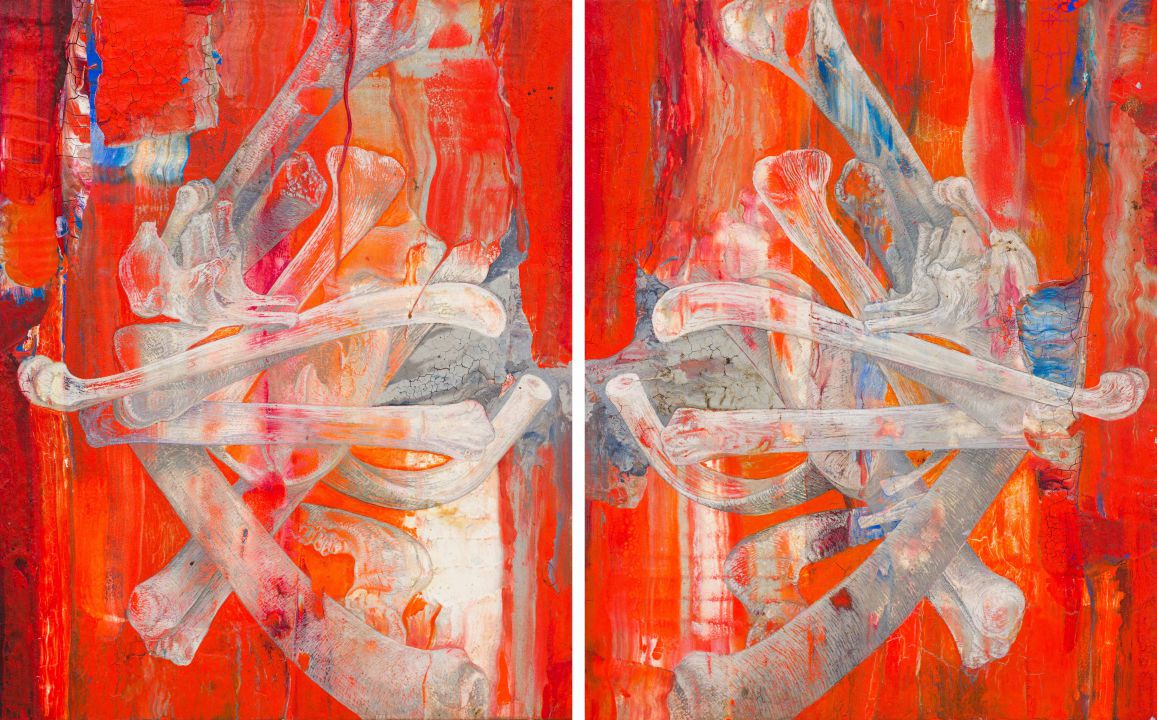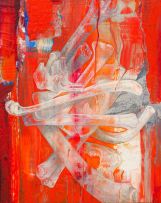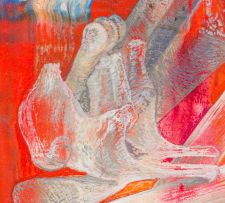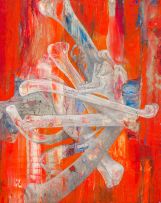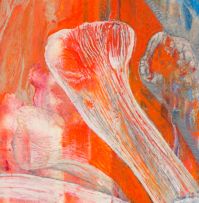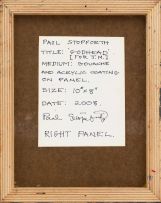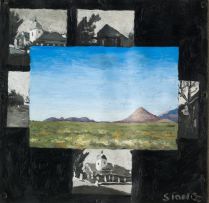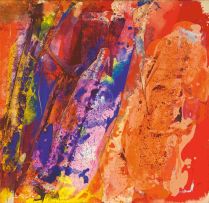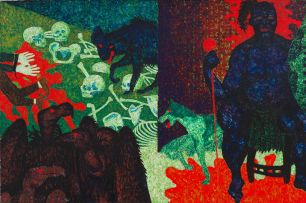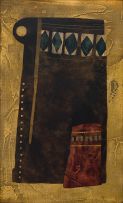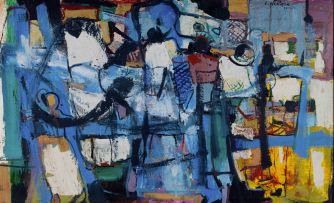Important South African and International Art
Live Auction, 12 November 2018
Day Sale
Incl. Buyer's Premium & VAT
About this Item
each signed, dated 2008 and inscribed with the artist's name, the title, the medium and a dedication 'For J. M.' in the artist's hand on a label adhered to the reverse
Notes
Paul Stopforth is one of the guardians of the memory of an era in which people were callously stripped of their basic human rights, where the death of a political prisoner could be demeaned, diminished and ascribed to a slapstick-like slipping on a bar of soap. His series of artworks portraying the body, bones and injuries of the late Steve Biko based on autopsy reports bears witness to Stopforth being one of the most uncompromising interpreters of South Africa's moral quagmire during the apartheid years.
In 1988 he emigrated to the United States and taught at the School of the Museum of Fine Arts at Tufts University, and in 1996 was appointed to the faculty of the Visual and Environmental Studies Department at Harvard University. Around the time of South Africa's first democratic elections in 1994, Stopforth's work became even more reflective and more complex. Apartheid was collapsing and Stopforth watched with interest as events unfolded. In 2004, he was invited to spend some weeks on Robben Island as artist-in-residence. The work he produced during and after this visit, makes sophisticated demands on the viewer as the artist unearths implacable truths and the inhumanity endured by those isolated on what was once a leper colony, then a notorious political prison. In Godhead, as in other works of the time, Stopforth makes use of a mirroring device that creates an almost intolerable tension between images.
Stopforth's commitment to bearing witness has never changed. He looks at objects, people, incidents and facts in a clear-eyed and compassionate way, and has deduced that a kind of truth resides in an agglomeration
of all these things.1
1 Adapted from: Judith Mason, 'Introduction', in Bronwyn Law-Viljoen (ed.) (2010). Paul Stopforth, Taxi Art Book Series, Johannesburg, David Krut Publishing.
Literature
Bronwyn Law-Viljoen (ed.) (2010). Paul Stopforth, Taxi Art Books Series, Johannesburg: David Krut Publishing, illustrated on pages 26 and 27.
